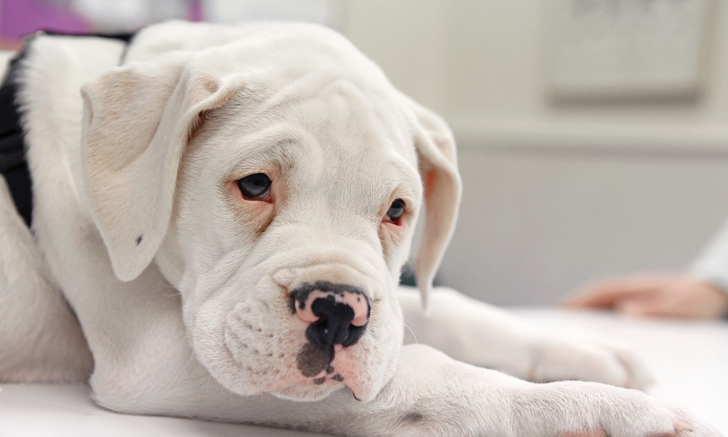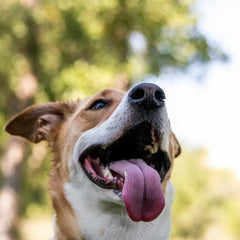In the realm of dog health and wellness, one of the critical concerns for pet owners in the UK is the canine parvovirus. This highly contagious virus poses a severe threat to dogs, especially puppies. In this guide, we unravel the facets of the parvovirus and the strategies for preventing this dreaded disease.
Understanding Parvovirus
Before we delve into preventive measures, let's understand what the canine parvovirus is and why it is a significant concern for dog owners.
Origins and Transmission
- Discovery: The virus was first identified in the 1970s and quickly became prevalent worldwide.
- Transmission: It primarily spreads through direct contact with an infected dog or through faecal-oral transmission.
Impact on Dogs
- Immune system: The virus severely impacts the dog's immune system, making them susceptible to secondary infections.
- Gastrointestinal tract: It aggressively attacks the gastrointestinal tract, leading to severe issues such as bloody diarrhoea.
Symptoms and Diagnosis
Being aware of the symptoms and getting a timely diagnosis can be a lifesaver in battling parvovirus.
Common Symptoms
- Lethargy: Dogs infected with the virus often exhibit extreme tiredness.
- Vomiting and diarrhoea: These are prevalent symptoms, often accompanied by blood.
- Loss of appetite: Infected dogs tend to lose interest in food, leading to rapid weight loss.
Diagnostic Procedures
- Physical examination: Vets usually start with a physical examination based on the symptoms presented.
- Faecal test: A faecal test is a common diagnostic tool to confirm the presence of the virus.
Treatment Options
Treating parvovirus is a complex process, often requiring intensive care and a series of treatments.
Hospitalisation
- Isolation: Infected dogs are generally isolated to prevent the spread of the virus to other pets.
- Supportive care: Supportive care, including fluids and nutrients through IV, is often required to help the dog recover.
Medications
- Antibiotics: To combat secondary bacterial infections, antibiotics are frequently prescribed.
- Anti-emetics: These are used to control vomiting and manage nausea.
Prevention Strategies
Prevention is always better than cure, and this holds exceptionally true for the parvovirus. Here are some preventive strategies to safeguard your pet from this virus.
Hygiene
- Cleanliness: Maintain a clean environment for your dog, including regular cleaning of their living space.
- Disinfection: Use a bleach solution to disinfect areas that may be contaminated.
Responsible Pet Ownership
- Avoid contact: Keep your dog away from potentially infected dogs, especially if your pet is not yet vaccinated.
- Safe play areas: Choose play areas wisely, ensuring they are clean and safe for your dog.
Vaccination
Vaccination stands as the frontline defense against the parvovirus.
Vaccination Schedule
- Initial vaccination: Puppies should receive their first vaccine between 6 to 8 weeks of age, followed by booster shots.
- Adult dogs: Adult dogs should adhere to a regular vaccination schedule as advised by the vet.
Vet Consultation
- Expert advice: Always consult with a vet to decide the best vaccination strategy for your dog.
- Health check-ups: Regular health check-ups are vital in maintaining your dog’s overall health.
FAQs
Q: Can humans get infected with the canine parvovirus?
A: No, the canine parvovirus does not affect humans.
Q: Can the parvovirus be treated at home?
A: It is highly discouraged to treat parvovirus at home as it requires intensive medical care.
Q: Can adult dogs get infected with the parvovirus?
A: While more common in puppies, adult dogs can also get infected, especially if they are not vaccinated.
Conclusion
In the UK, the canine parvovirus remains a formidable adversary in the pursuit of dog health and wellbeing. Understanding the virus and being vigilant about symptoms can aid in early diagnosis. However, prevention, underscored by cleanliness and vaccination, is the most potent weapon in your arsenal against this virus. Adhere to this comprehensive guide to fortify your beloved pet against the parvovirus and ensure their long, happy, and healthy life.





